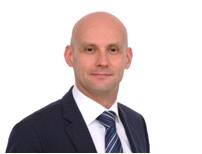Each week Emerging Markets ESG publishes an interview entitled, “Five Questions about SRI.” The interview features a practitioner’s insights about SRI in emerging markets and through Emerging Markets ESG shares this expertise with a wide global audience. The goals of Five Questions about SRI are fourfold:
- To collect a catalogue of examples of SRI in practice in emerging markets;
- To raise awareness about SRI in emerging markets;
- To reflect on what SRI in emerging markets means to practitioners; and
- To enable SRI practitioners in emerging markets to network with peers around the world.
This week’s interview is with Guido Giese, PhD, Head of Indexes, RobecoSAM, Zurich, Switzerland and Julia Kochetygova, Senior Director, Global Equity Indices, S&P Dow Jones Indices, New York, New York, United States of America.
RobecoSAM is an investment specialist focused exclusively on Sustainability Investing. Its offerings comprise asset management, indices, private equity, engagement, impact analysis and sustainability assessments as well as benchmarking services. Asset management capabilities include a range of ESG-integrated investment and theme strategies (in listed and private equity) catering to institutional asset owners and financial intermediaries across the globe. Together with S&P Dow Jones Indices, RobecoSAM publishes the globally recognized Dow Jones Sustainability Indexes (DJSI). Based on its Corporate Sustainability Assessment, an annual ESG analysis of more than 2,000 listed companies, RobecoSAM has compiled one of the world’s most comprehensive sustainability databases. RobecoSAM’s proprietary research and sustainability insight, gained through its direct contact with companies, are fully integrated into the company’s investment solutions. RobecoSAM is a member of the global pure-play asset manager Robeco, which was established in 1929 and offers a broad range of investment products and services. Robeco also has a long tradition of practicing and advocating Sustainability Investing principles. RobecoSAM was founded in 1995 out of the conviction that a commitment to corporate sustainability enhances a company’s capacity to prosper, ultimately creating competitive advantages and stakeholder value. As a reflection of its own commitment to advocating sustainable investment practices, RobecoSAM is a signatory of the UNPRI and a member of Eurosif, ASrIA and Ceres. Headquartered in Zurich, RobecoSAM employs over 100 professionals. As of December 31, 2012, RobecoSAM’s assets under management, advice and license amounted to a total of USD 11.4 billion. In his function as Head of Indexes, Guido Giese PhD is responsible for the maintenance and the further development of the Dow Jones Sustainability Indices (DJSI). Additionally, he will oversee global sales, licensing, partnerships and client services for the DJSI. Prior to joining RobecoSAM, Guido Giese was Head of Research and Development at STOXX where he was responsible for developing new index solutions. He has more than 12 years of experience in risk management and asset management at large international banks as well as at KPMG. Guido Giese holds a PhD in Applied Mathematics from the Swiss Federal Institute of Technology Zurich.
S&P Dow Jones Indices LLC, a subsidiary of The McGraw-Hill Companies is the world’s largest, global resource for index-based concepts, data and research. Home to iconic financial market indicators, such as the S&P 500® and the Dow Jones Industrial Average℠, S&P Dow Jones Indices LLC has over 115 years of experience constructing innovative and transparent solutions that fulfill the needs of institutional and retail investors. More assets are invested in products based upon our indices than any other provider in the world. With over 830,000 indices covering a wide range of assets classes across the globe, S&P Dow Jones Indices LLC defines the way investors measure and trade the markets. Julia Kochetygova, Senior Director at S&P Dow Jones Indices, heads up the Russia/CIS client coverage group. Julia’s duties include managing relations with the RTS stock exchange and designing the methodology for the global S&P ESG index. Prior to joining S&P Dow Jones Indices, Julia worked for the Russian MDM Bank in the corporate and investment block, where she developed their business strategy, and before that was a head of corporate relations at the same bank. Prior to working at MDM Bank, Julia was a director of corporate governance services at S&P Ratings, where she was responsible for analytical supervision and business development of this new analytical service. Julia holds a Ph.D in economics and a master’s degree in economics from Plekhanov State Institute of National Economy in Moscow.
Emerging Markets ESG: How would you define socially responsible investment (SRI)?
 Guido Giese: This is indeed a very interesting question because when you ask different people you will get a number of different definitions for the term SRI and ESG. We at RobecoSAM make a very clear distinction between SRI and ESG. In our view, SRI tends to concentrate on the exclusion of certain companies from portfolios based on what they do or products/services that they provide. This approach is alive and well globally. However, what we at RobecoSAM do is called “ESG integration” and this is something different, though some confuse the two. We look at environmental, social and governance (ESG) criteria when evaluating companies. We employ a systematic approach that allows for identification of high-growth investment themes and integration of material extra-financial criteria into traditional investment analysis to build portfolios that generate superior returns and add value to existing asset allocations.
Guido Giese: This is indeed a very interesting question because when you ask different people you will get a number of different definitions for the term SRI and ESG. We at RobecoSAM make a very clear distinction between SRI and ESG. In our view, SRI tends to concentrate on the exclusion of certain companies from portfolios based on what they do or products/services that they provide. This approach is alive and well globally. However, what we at RobecoSAM do is called “ESG integration” and this is something different, though some confuse the two. We look at environmental, social and governance (ESG) criteria when evaluating companies. We employ a systematic approach that allows for identification of high-growth investment themes and integration of material extra-financial criteria into traditional investment analysis to build portfolios that generate superior returns and add value to existing asset allocations.
Emerging Markets ESG: What distinguishes SRI from mainstream investment?
 Julia Kochetygova: As genuine believers in sustainable investment strategies, we would be happy if there were no difference between mainstream and SRI types of investments. Eventually, the time will come when they will fully converge. However, this is happening very slowly, and particularly so in emerging markets, where more opportunistic investment strategies currently dominate. These are driven by short-term financial considerations, with little regard to such long-term issues as environment pollution, climate change, social inequality and human rights abuse, and various issues in corporate governance. These are important both as risk factors, and as sources of future breakthrough growth and competitive advantage. There have been quite a few examples when companies in emerging markets who took these issues seriously, would experience higher growth than their peers. As long as this link becomes more evident, integration of ESG factors into investment process will become more common, eventually leading into mainstreaming SRI. We at S&P Dow Jones Indices offer such options through a variety of sustainability-themed indices, some of which are focusing specifically on emerging markets, such as S&P/IFCI Carbon Efficient Index, S&P ESG Indices in India, Egypt and Middle East and recently launched DJSI Emerging Markets.
Julia Kochetygova: As genuine believers in sustainable investment strategies, we would be happy if there were no difference between mainstream and SRI types of investments. Eventually, the time will come when they will fully converge. However, this is happening very slowly, and particularly so in emerging markets, where more opportunistic investment strategies currently dominate. These are driven by short-term financial considerations, with little regard to such long-term issues as environment pollution, climate change, social inequality and human rights abuse, and various issues in corporate governance. These are important both as risk factors, and as sources of future breakthrough growth and competitive advantage. There have been quite a few examples when companies in emerging markets who took these issues seriously, would experience higher growth than their peers. As long as this link becomes more evident, integration of ESG factors into investment process will become more common, eventually leading into mainstreaming SRI. We at S&P Dow Jones Indices offer such options through a variety of sustainability-themed indices, some of which are focusing specifically on emerging markets, such as S&P/IFCI Carbon Efficient Index, S&P ESG Indices in India, Egypt and Middle East and recently launched DJSI Emerging Markets.
Emerging Markets ESG: Which extra-financial theme – environmental, social or governance – is the most challenging for companies in emerging markets to manage?
Julia Kochetygova: We believe that corporate governance is the most challenging factor in emerging markets because of the historical legacy of the lack of corporate culture based on checks and balances. Moreover, good corporate governance is a pre-requisite for proper treatment of environmental and social issues: Solid internal controls, comprehensive strategy-setting process, transparency and independent oversight are needed to take these issues seriously. Management remuneration system can encourage responsible behaviors and ensure sustainable development only when executives are remunerated in accordance with their long-term and not financial only results. Push from global investors can trigger such transformation. We see this gradually happening in such countries as China and India, but more consolidated efforts are still needed.
Emerging Markets ESG: Which extra-financial theme – environmental, social or governance – is the most challenging for investors in emerging market companies to analyze?
Guido Giese: The growth of the ESG industry in the emerging markets in recent years has seen the regions, along with other high-growth areas, starting to play a role in the global ESG market alongside the established hubs of Australia, Europe, and North America. Investors are increasingly showing an interest in the emerging markets as an alternative to these other markets as a place to make sustainable investments. Since uncertainty in Western financial markets seems to remain for the time being, this in turn offers emerging markets the opportunity to close the sustainable and responsible investment gap on its Western peers, both as an area into which to invest and as a place from which to manage assets. Global investors employing sustainable investment strategies will need to tackle the challenge of being near their clients while at the same time also near investee companies. This challenge is very relevant for established investors in sustainability investing (Europe, Australia and North America) because they currently underweight emerging markets and Asia, but are targeting greater emerging market allocation in public and private markets.
Emerging Markets ESG: Would you please introduce to readers the newly launched Dow Jones Sustainability Emerging Markets Index (DJSI Emerging Markets).
Guido Giese: The DJSI Emerging Markets offers investors a tool for measuring the performance of companies that RobecoSAM has recognized as leaders compared to their peers in terms of corporate sustainability. It also provides an effective engagement platform to encourage companies from the emerging markets to adopt sustainable best practices. Although much progress has been made in terms of political and economic stability, many companies in the Emerging Markets continue to operate in challenging surroundings. The DJSI Emerging Markets seeks to identify corporate sustainability leaders by drawing on RobecoSAM’s extensive experience in measuring intangibles through the annual Corporate Sustainability Assessment (CSA). For example, RobecoSAM has identified resource efficiency as a potential driver of corporate success in the emerging markets based on the important role commodities play in the regional value chain. The steady increase in the number of emerging market companies that participate in our CSA shows that businesses around the world are embracing sustainable practices as an important factor in their future competitive position. As the emerging markets have come of age, demand for a regional benchmark for sustainability investors has increased and with the DJSI Emerging Markets we can now offer an appropriate product.